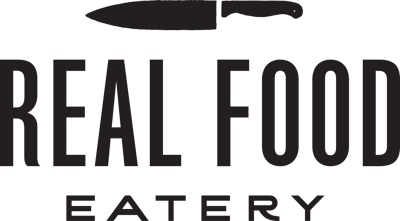Health Hack #2 - Know Thy Fish Farm
KNOW THY FISH FARM!
With a counter-service concept, we have the opportunity to interact directly with each and every one of our in-store customers. It’s a very engaging experience. And throughout these tens of thousands of interactions, we notice that certain questions are asked repeatedly. One of these recurring questions is: “Is your salmon wild caught?”.
The briefest answer is “No.” However, even a long-winded, articulate explanation of our product leads to the same result 95% of the time. “I’ll have the chicken instead.”
Farm Raised versus Wild Caught
For those unfamiliar with the baseline terminologies, fish products are generally bundled into one of two categories: farm raised or wild caught. The latter is pretty self-explanatory – the fish was caught in the wild. However, the former doesn’t convey an all-encompassing description. The product was farmed. But does that automatically imply it’s unnatural? Or any worse for you, nutritionally?
We built our store under the premise that it was wild caught or bust. It wasn’t until we began to understand the nuance within the seafood industry more deeply that we began to open up to the idea of sourcing farmed products. Full admission: farmed fish are cheaper than wild caught, so there was certainly an incentive for us to explore the alternative.
Conditions of fish farming operations can vary immensely from one another. On the negative extreme you have overcrowding, GMO-laden unnatural feed, the propensity for rampant illness, etc. On the flipside lies the opposite: spacious quarters, natural dietary sources, and a living environment not all that dissimilar from the wild. A pretty valid argument can be made that in sustainable farming operations, quality and safety can actually be improved. Our natural waters are laden with toxins, and these can lead to elevated levels of dangerous contaminants in wild fish such as mercury, particularly in larger, more predatory species (i.e. tuna).
How do I know about the efficacy of a farm?
So if you’re able to trace your fish back to it’s farm – and most grocery store and seafood suppliers should have this information available to you, even if it’s not on display – then maybe it isn’t always an inferior alternative, so long as you can search and verify the efficacy of their practices (i.e., via the farm’s website). We’ve certainly opened ourselves up to this notion and are proud to source salmon that comes from a reputable farming operation that shares in our tenants and overall food ethos.
Quick thought experiment to leave you with
Grass-fed beef is upheld in the highest regard as far as cow products are concerned, but is a well run grass-fed farming operation really all that different from a sustainable, integrity-driven fish farm?
Til next week!
RFE
